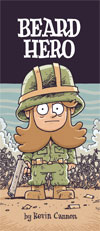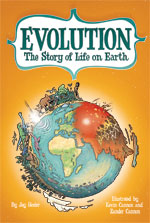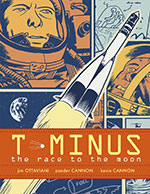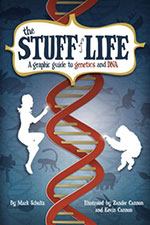Along the lines of the Story Triangle, this is another shorthand that I like to use when writing. It's something easy to keep in mind, and it really helps keep stories interesting without losing focus.
Every story that you read has both a logical storyline and an emotional one. For the purposes of this discussion, let's think of the logical story as the framework of a highrise building-- the beams and girders. The emotional storyline is the walls, paint, carpet, and decorations. Obviously, to make a building that anyone wants to live in, we need both to work properly. Not enough emotion and we're walking around in a construction site with howling winds and rain pelting us. Might be interesting to see how the building is put together, but you wouldn't want to spend much time there. On the flip side, if you don't have enough logic, you get the Winchester House. Beautiful, but there's only so many times you can open a door to a brick wall or a three-story drop before you just want to get the hell out of there.
Creating Storylines: Logical
When creating a logical storyline, all that really is required is that it make sense, and there are no gaping plot holes. Anything that makes your audience go, "Yeah, right" is immediately suspect. If your story involves someone breaking into a tightly secured area, do the security measures make sense from the point of view of the people who made them? For example, in the movie Mission Impossible, Ethan Hunt has to get information from a computer without touching the floor or raising the temperature of the room. Very exciting. However, don't you think it would be easier to apply an alarm system to the keyboard or anywhere else on the computer than to the floor or the thermostat?
Another point is that it is important not to make the plot too convoluted. It may make sense in a timeline framework in your notes, but once you add characters and emotions, you're going to find yourself either catching people up with dull exposition scenes or making the story twice as long as you intended.
It would be easy to think that the logical storyline is all that is required of a story. The plot has its sequence; the problems are presented, and then they are solved. But it will read like a history book if you don't inject it with some heart.
Creating Storylines: Emotional
When I'm writing, I like to lay out my logical storylines (keeping them pretty sparse, of course), and think of them only as sequences of events, assigning a character's emotions in that scene only when it's unavoidable. In the case of an ensemble episodic storyline, with a great number of characters, I like to keep it vague in the plotting stage who's going to be the focus so that I can change it later if I feel like someone else will work better.
Laying in the emotional storyline is less detail-oriented than the logical storyline, but the tradeoff is that the action has to consistently flow and build to a climax. The character or characters you focus on have to go through a change in order for the story to be worth telling (of course, other variations are that a mysterious or uncommunicative character is gradually revealed, or that a relationship between two characters develops rather than their individual personalities). A story without a character growing will play out as being rather flat. A reader or viewer might look back on it and note how well it was plotted, or how wonderful the world it inhabited was, but it will be ultimately a little unsatisfying. To give another movie example, in The Peacemaker, a very well-plotted, well-shot spy/military movie, the climax occurs when the two protagonists have to disarm a bomb in a church. They have both used all of their skills and ingenuity to track down the bomber and tinker with the inner workings of the mechanism. But there was no particular growth or change in either character, either during or after. They are highly trained specialists, and they used their respective skills to accomplish their mission. Big deal. I actually quite enjoyed the movie, but it left me just a little cold in that way. Think about that the next time you see a movie or read a book or comic that was good, but somehow didn't satisfy. Did the main character grow or change, or did he/she stay exactly the same?
The emotional storyline, in many cases, is completely detached from the logical one. In episodic works (like TV or serialized comics) the plot may stretch on for many many chapters, while emotional plots are tied up relatively neatly in each episode. This makes for satisfying viewing or reading without having to come up with a tightly plotted mystery to weave every single time.
The bottom line it this: The logical story keeps things structured, makes sense, and is believable. It allows people to tolerate your story. The emotional storyline, on the other hand, is what makes things exciting, mysterious, or charming. It is what will make people love your story. And isn't that what we all want?
Tuesday, April 03, 2007
Subscribe to:
Post Comments (Atom)






No comments:
Post a Comment